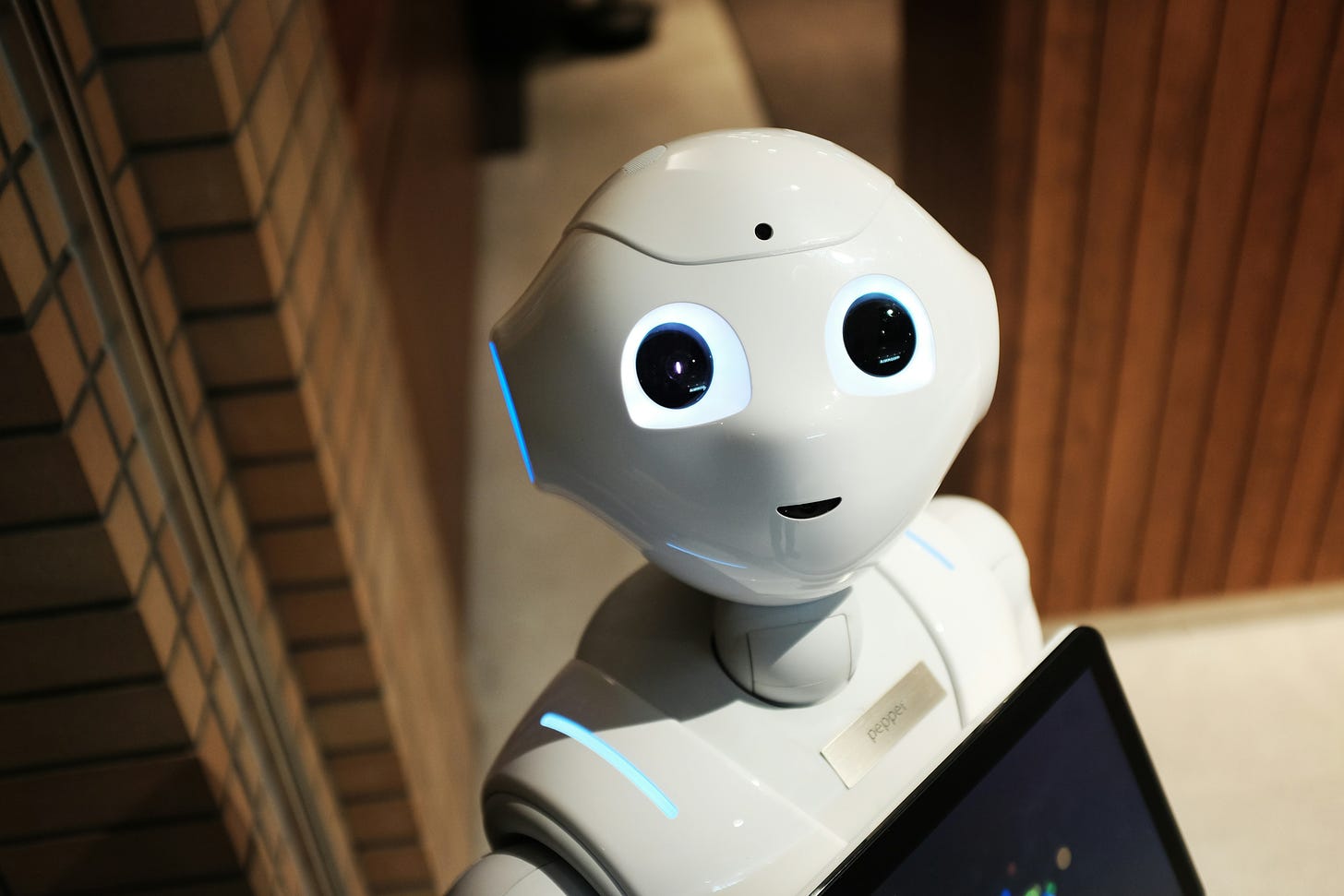AI Might Help Us Age in Place
Photo by Alex Knight on Unsplash
Surveys consistently show that the vast majority of older adults prefer to age in place – in the comfort of their homes – rather than in institutional care. One big obstacle to achieving that happy outcome is a nationwide shortage of home healthcare workers available to bring services to the home. Though the number of direct care workers has doubled to 5.1 million over two decades, that’s still 3.8 million fewer workers than the number of job openings expected by 2032.
Fear not! Artificial Intelligence (AI) is coming to the rescue! Just ask the AI boosters and visionaries, who proclaim a future in which AI companions will combat loneliness and social isolation, AI monitors and sensors will warn of falls and serious illnesses before they occur, and AI fonts of all knowledge will offer tentative diagnoses, solve tech problems, and show users how to use all the features of their tech appliances.
My advice: Don’t hold your breath. These predicted uses for AI fall neatly into a category known as science fiction. In science fiction, any bloke of average intelligence can click a button on his smartphone to activate any smart device in his smart home, because everything is integrated into a single seamless system. We know this must be science fiction, because science nonfiction today looks nothing like it.
“Let’s say you have a smart tv, a smartphone, a personal computer, a tablet, and a smart thermostat. They’re not connected to each other,” said Laurie Orlov, the editor of the blog Aging and Health Technology Watch, in an interview with me last week. “Each installation is different. For any upgrades, you’re on your own.”
Solutions vs. Products
Orlov says the time is right to create solutions – not products – for Aging in place. “It’s great that 76% of people 65 and older in the U.S. have a smartphone,” she says. “But they want to use them in the home [to help them age in place]. They can’t yet.”
The first step toward creating an integrated solution, she says, would be industry-wide standards. Last year Matter was established as a connectivity standard for smart home devices, but it has not been widely adopted. Some product makers are reluctant, Orlov says, because they “seek to give their products competitive differentiation” to gain an edge in the marketplace. “Apple is among the worst on that score.” For example, Apple’s iMessage feature works only on Apple devices; the messages can’t be read on android phones. Orlov also notes that in her own household she has an android phone, an iPhone, and an Apple Watch – three devices that require three different chargers.
Orlov frequently chastises the tech industry for releasing products that frustrate older adults by being difficult to operate, having inadequate tech support, and just generally ignoring the preferences and needs of older consumers.
Customers Don’t Matter
“The customer no longer matters,” she wrote in a recent post. Despite wider access to tech, “there are many more problems with using poorly designed or inappropriate tech.” The user experience is mostly “a constant struggle to produce the right command, find the right part of the right website, and overcome the insanity of bug-fixing updates after updates. And that is if you are well-trained and proficient” – which most of us are not.
Those issues notwithstanding, Orlov is a believer when it comes to AI. “It’s already here now, and it’s extremely useful,” she says. “Health care is using it because they need it,” given worker shortages and high rates of staff Burnout.
“If you look at the history of Technology, many changes were intimidating at first,” she says. Eventually they were widely adopted, and the technology became more sophisticated.
She predicts AI will be a widely accepted part of aging at home – once the tech companies put down their combat armor long enough to agree on common standards that will make well integrated systems possible.
It also wouldn’t hurt for those tech companies to spend more time listening to older adults so they could design products that we consider truly useful and easy to use. But for now, that’s just more science fiction.
























